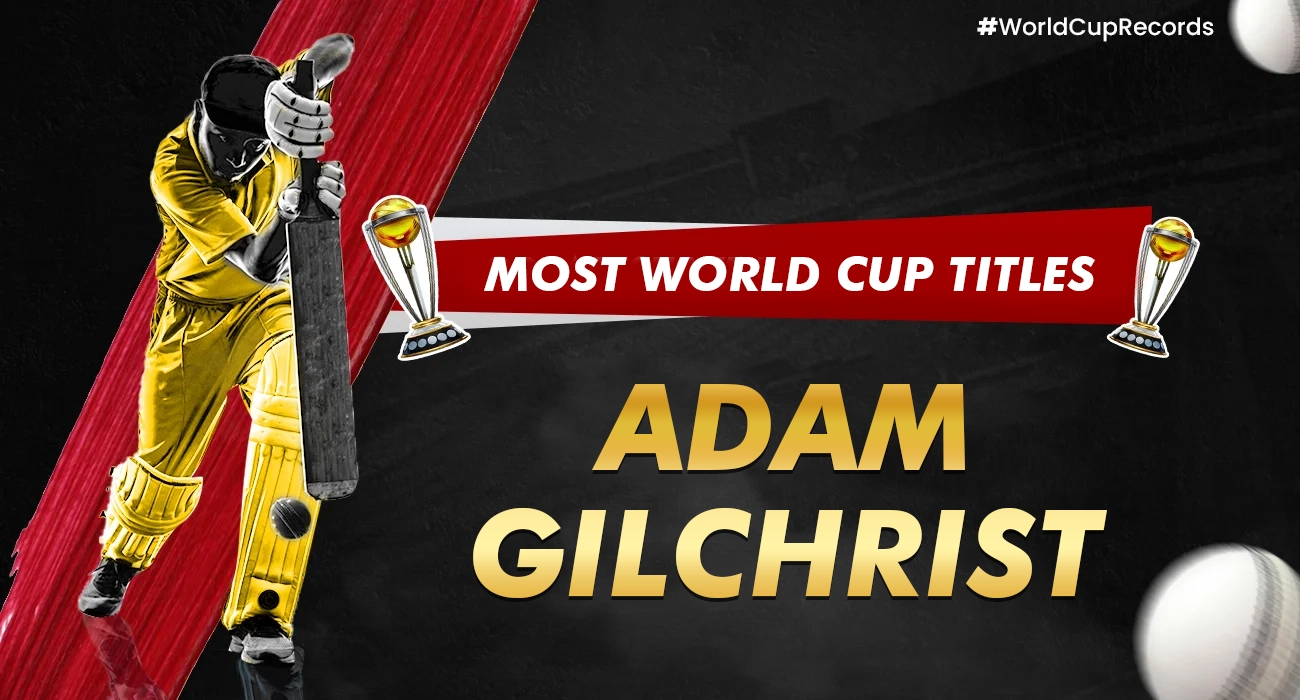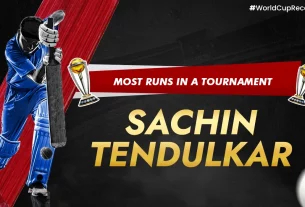ICC Men’s Cricket World Cup Records and Statistics: Which players have recorded and earned the most world cup titles in the history of the cricket world cup?
The fantastic trio of Adam Gilchrist, Glenn McGrath, and Ricky Ponting, who have won three ICC Cricket World Cups, best represent Australia’s unmatched dominance in cricket. They have collectively won an astounding nine World Cups, a testimonial of their extraordinary abilities. These cricketing icons symbolize Australia’s unmatched dominance on the international scene and display unmatched talent. Their legendary feats serve as a beacon of Australian cricket’s unrivaled success, cementing their reputation as legends in the annals of the game’s history and inspiring succeeding generations. Let’s check out the players which the most world cup titles so you can engage in the best online cricket betting app in India and get some fun in your corner.
Ricky Ponting – The Charismatic Captain
Ricky Ponting’s outstanding performances in the ICC Cricket World Cup helped him establish his reputation as one of cricket’s best captains. His excellent batting abilities and skill as a skipper guided Australia to an unprecedented tournament victory. Ponting played a crucial role in Australia’s batting order in the 1999 World Cup final match against Pakistan. His crucial 145 runs demonstrated his resilience under pressure and helped Australia win the World Cup for the second time.
An important turning point in Australian cricket occurred in 2003 with Ponting’s promotion as captain. Leading from the front was the hallmark of his leadership style, exemplified by his stunning century in the championship game versus India. This ensured Australia’s third World Cup and enhanced his standing as a captain who sets an exemplary example for his team.
Ponting’s wise choices and tactical insight were displayed during the 2007 World Cup. Australia won yet another tournament under his direction, solidifying their place as the world’s best cricketing nation. The legacy of Ricky Ponting, a successful captain and a top-tier batsman, will always serve as a model for cricket leadership.
Glenn McGrath – The Unerring Pacer
Glenn McGrath, known as “Pigeon,” was one of cricket’s most practical and productive fast bowlers. His ability to consistently strike the correct line and length for batters worldwide made him a terror. Even though McGrath’s World Cup odyssey began in 1996, it was in 1999 that he significantly contributed to Australia’s World Cup victory.
McGrath finished as the tournament’s top wicket-taker in 1999 after taking 18 wickets. He was incredibly helpful to the Australian team because of his capacity to start the game quickly and set the tempo. In the 2003 World Cup, he extended his dominance by taking 21 wickets, including three vital ones in the match against India.
McGrath was a cornerstone of Australia’s bowling assault because of his exceptional consistency and ability to deliver under duress. Again, he played a significant role in Australia winning the World Cup in 2007, demonstrating his abilities were still razor-sharp.
Adam Gilchrist – The Explosive Opener
In the 1990s, the flamboyant wicketkeeper-batsman Adam Gilchrist debuted for his country. He was well known for his rash batting style & excellent wicket-keeping skills. His World Cup career began in 1999 when he was a crucial component of Australia’s victory. At the top of the order, Gilchrist’s aggressive approach was a game-changer, and his match-winning 54 off 36 balls against Pakistan in the final set the tone for Australia’s triumph.
With 673 runs, including a blistering 57 off 48 balls in the final against India, Adam Gilchrist continued his impressive performance in 2003 and helped Australia win its second World Cup. His ability to lead shined in 2007 when he took over as captain and led Australia to a third straight World Cup victory. In addition to his other accomplishments, Gilchrist transformed the function of the wicketkeeper-batsman in limited-overs cricket. In addition to breaking records, he changed the nature of the game in Australia, leaving a lasting impression on the sport’s history.






